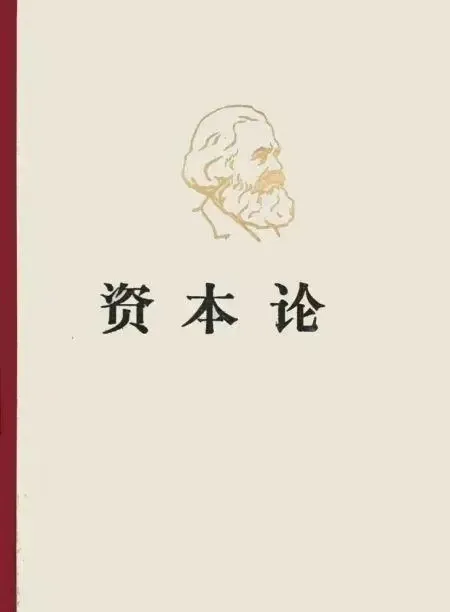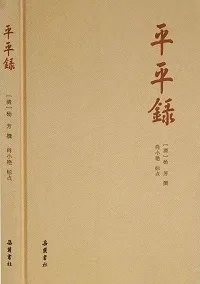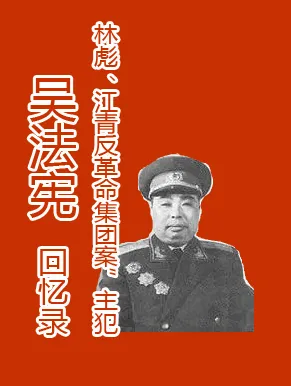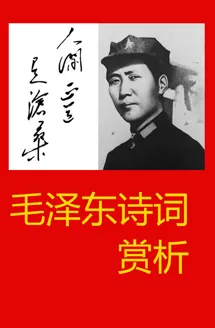ON the following day, Quentin awoke very early. An unusual sensation of heat and dryness penetrated1 his senses. He looked through the balcony window. The delicate, keen, somewhat lustreless2 light of morning glowed in the street. In the clear, pale sky, a few white clouds were drifting slowly.
Quentin dressed himself rapidly, left the house in which all were still sleeping, turned down the street, went through a narrow alley3, crossed a plaza4, followed a street, and then another and another, and soon found himself without knowledge as to his whereabouts.
“This is amusing,” he murmured.
He was completely at sea. He did not even know on which side of the city he was.
This made him feel very gay; happily, and with a light heart, thinking of nothing in particular, but enjoying the soft, fresh air of the winter morning, he continued with real pleasure to lose himself in that labyrinth5 of alleys6 and passages—veritable crevices7, shadow-filled....
The streets narrowed before him, and then widened until they formed little plazas8: they were full of sinuous9 twists; they traced broken lines through the city. Water-spouts, terminating in wide-open dragon mouths,[26] threatened each other from opposite eaves, and the two lines of tiled roofs, broken now and then by projecting bay-windows, and azoteas (flat roofs or terraces upon the house-tops), were so close together that the sky was reduced between them to a ribbon of blue—of a very pure blue.
When one narrow, white street came to an end, on either side there opened out others equally narrow, white, and silent.
Quentin never imagined that there could be so much solitude10, so much light, so much mystery and silence. His eyes, accustomed to the filtered and opaque11 light of the North, were blinded by the reverberation12 of the walls. The air buzzed in his ears like a huge, sonorous13 sea-shell.
How different everything was! What a difference between this clear and limpid14 atmosphere, and that grey northern air: between the refulgent15 sun of Cordova, and the turbid16 light of the misty17, blackened towns of England!
“This is a real sun,” thought Quentin, “and not that thing in England that looks like a wafer stuck on brown paper.”
In the plazoletas, white houses with green blinds, with their eaves shaded by tracings of blue paint, their intersecting angles twisted, and splashed with lime, sparkled and shone. And from the side of one of these sunbaked plazas, there started a narrow, damp, and sinuous alley, full of violet shadows.
Sometimes Quentin paused before sumptuous18 façades of old manorial19 houses. At the furthest end of the broad entrance, the wrought-iron flowers of the grating stood out against the brilliant clarity of a resplendent[27] patio20. That drowsy21 spot was surrounded by rows of arches, and jardinières were hung from the roofs of the corridors; while from a marble basin in the centre, a fountain of crystalline water plashed in the air.
In the houses of the rich, great plantain trees spread their enormous leaves, and cactus22 plants in green wooden pots, decorated the entrance. In some of the poorer houses, the patios23 could be seen overflowing24 with light at the end of very long and shadowy corridors.
The day was advancing: from time to time a figure wrapped in a cloak, or an old woman with a basket, or a girl with her hair down her back and an Andújar pitcher25 on her well-rounded hip26, would pass quickly by, and suddenly, instantaneously, one or the other of them would disappear in the turn of an alley. An old woman was setting up a small table, on top of which, and upon some bits of paper, she was arranging coloured taffy.
Without realizing where he was going, Quentin came to the Mosque27, and found himself before the wall facing an altar with a wooden shed, and a grating decorated with pots of flowers. On the altar was this sign:
Si quieres que tu dolor
se convierta en alegría,
no pasarás, pecador,
sin alabar a María.
(If you wish your grief to be changed to joy, you will not pass by, O sinner, without first praising the Virgin28 Mary.)
Near the altar was an open gate, and through it, Quentin passed into the Patio de los Naranjos.
Above the archway of the entrance, the cathedral[28] tower, broad, strong, and resplendent in the sun, raised itself toward heaven, standing29 out in clear and sharp silhouette30 in the pure and diaphanous31 morning air.
Now and then a woman crossed the patio. A prebendary, with cap and crimson32 mozetta, was walking slowly up and down in the sun, smoking, with his hands clasped behind his back. In the shelter of the Puerta del Perdón, two men were piling oranges. As Quentin neared the fountain, a little old man asked him solicitously33:
“Do you wish to see the Mosque?”
“No, sir,” replied Quentin pleasantly.
“The Alcázar?”
“No.”
“The Tower?”
“No.”
“Very well, Señorito, pardon me if I have molested34 you.”
“Not at all.”
When Quentin left the Patio de los Naranjos, he met the French couple of the train near the Triunfo column. M. Matignon hastened to greet him.
“Oh, what a town! What a town!” he cried. “Oh, my friend, what an extraordinary affair!”
“Why, what has happened to you?”
“A thousand things.”
“Good or bad?”
“Both. Just fancy: last night as I was coming out of a house, and was about to enter my hotel, a man with a lantern in his hand, and a short pike, commenced to pursue me. I went into the hotel and locked myself in my room; but the man came into the hotel; I’m sure of it, I’m sure of it.[29]”
Quentin laughed, realizing that the man with the lantern and the short pike was a night watchman.
“Pay no attention to the man with the pike,” said he. “If he sees you again and starts to follow you, look him straight in the eye, and say to him firmly: ‘I have the key.’ It is the magic word. As soon as he hears it, he will go away.”
“Why?”
“Ah! That is a secret.”
“How strange! One says to him, ‘I have the key,’ and he goes?”
“Yes.”
“It is marvellous. Something else happened to me.”
“What?”
“Last night we went to a café, and I left my stick upon a chair. When I went back after it, it was no longer there.”
“Naturally! Some one carried it off.”
“But that is not moral!” declared M. Matignon indignantly.
“No. We Spaniards have no morals,” replied Quentin somewhat dejectedly.
“One cannot live without morality!”
“But we do live without it. With us, stealing a stick, or stabbing a friend are things of small importance.”
“You cannot have order in that way.”
“Of course not.”
“Nor discipline.”
“True.”
“Nor society.”
“Assuredly not: but here we live without those things.[30]”
M. Matignon shook his head sadly.
“Are you going to continue your walk?” he asked.
“Yes.”
“We shall go with you if we won’t be in your way.”
“Come by all means.”
Together the trio began to wander through that puzzling entanglement35 of alleys. The barrio, or district into which they penetrated (the vicinity of El Potro), was beginning to come to life. A few old women with sour-looking faces, some with mantles36 of Antequera baize, others with black mantillas, were on their way to mass, carrying folding chairs under their arms.
“Dueñas, eh?” said the Frenchman, pointing his finger at the old women. “But their ladies, where are they now?”
“Probably snoring at their ease,” replied Quentin.
“But, do they snore?”
“Some of them, yes.”
“Snore? What is that?” Madame Matignon inquired of her husband in French.
“Ronfler, my dear,” said Matignon, “ronfler.”
His wife made a disdainful little grimace37.
When the gossips in the streets caught sight of the trio, they exchanged a jest or two from door to door. Servant girls were scrubbing the floors of the patios with mops, and singing gipsy songs; balcony windows flew open with a bang, as women came out to shake their rugs and carpets.
Grimy-looking men passed them, pushing carts and shouting: “Fish!” Vendors38 of medicinal herbs languidly cried their wares40; and a muleteer, mounted upon the hindmost donkey of his herd41, rode along singing to the tune42 of the tinkling43 bells on his decorated asses44.[31]
Once, behind a window-grating, they caught sight of a pallid45, anæmic face with large, sad, black eyes, and a white flower stuck in the ebony hair.
“Oh! Oh!” cried Matignon, and immediately ran to the window.
The maiden46, offended by his curiosity, pulled down the curtain, and went on embroidering47 or sewing, waiting for the handsome gallant48, who perhaps never came.
“They are odalisques,” declared the Frenchman rather spitefully.
In the doorways49 on some of the streets, they saw men working at turning lathes50 in the Moorish51 fashion, using a sort of bow, and helping52 themselves in their tasks with their feet.
Quentin, who was already tired of the walk and of the observations and comments of the Frenchman, announced his intention of leaving them.
“I would like to ask you a question first,” said Matignon.
“Proceed.”
“I wish to see an undertaking53 establishment.” “An undairtaking estableeshment,” the good man called it.
“There are none here,” replied Quentin. “They are all far away; but if you should see a shop where they sell guitars, you may be pretty sure that that is where they make coffins54, too.”
“Can it be possible?”
“Yes. It’s a Cordovese custom.”
M. Matignon’s mouth fell open in surprise.
“It is extraordinary!” he exclaimed when he had recovered from his astonishment56, and he drew a memorandum57 book and a pencil from his pocket. “Where did this custom come from?[32]”
“Oh! It is very ancient. The casket-makers here declared that they were loath58 to confine their efforts to sad things, so from the same wood out of which they make a coffin55, they take a piece for a guitar.”
“Admirable! Admirable! And they do not know that in France! What a philosophy is that of the casket-maker! O, Cordova, Cordova! How little thou art known in the world!”
At that moment, a tattered59, bushy-haired vendor39 of sacred images crossed a very small plaza which contained a very large sign-post. Upon his white, matted hair he wore a greasy60 and dirty hat as large as a portico61. His loose-fitting, long-sleeved cloak was worn wrong side to: the back across his breast, and the sleeves, knotted and bulky at the ends, falling down his back. Under his right arm he carried the saint, and in his belt was a cash-box with a slot for pennies.
“Pst! Silence!” said Quentin. “You are about to behold62 a most interesting spectacle.”
“What is it?”
“Do you see that man?”
“Yes.”
“I’ll wager63 you cannot guess who he is?”
“No.”
“The Bishop!”
“Yes, sir.”
“But he hasn’t the appearance of a bishop, nor even of a cleanly person.”
“That doesn’t matter. If you follow him cautiously, you will be able to see something very strange.”
After he had said this, Quentin bowed to the couple, and walked rapidly away in the direction of his home.







